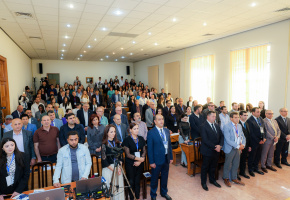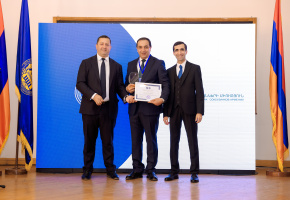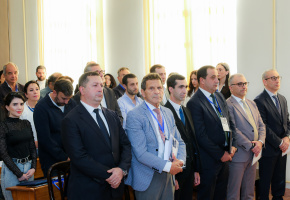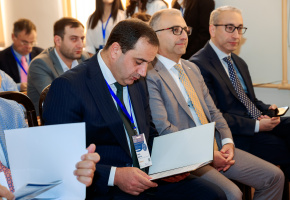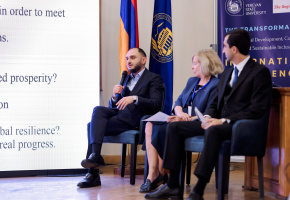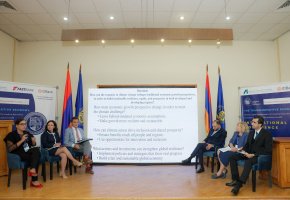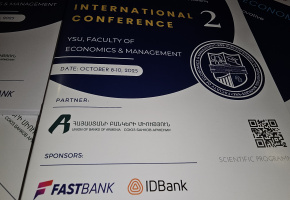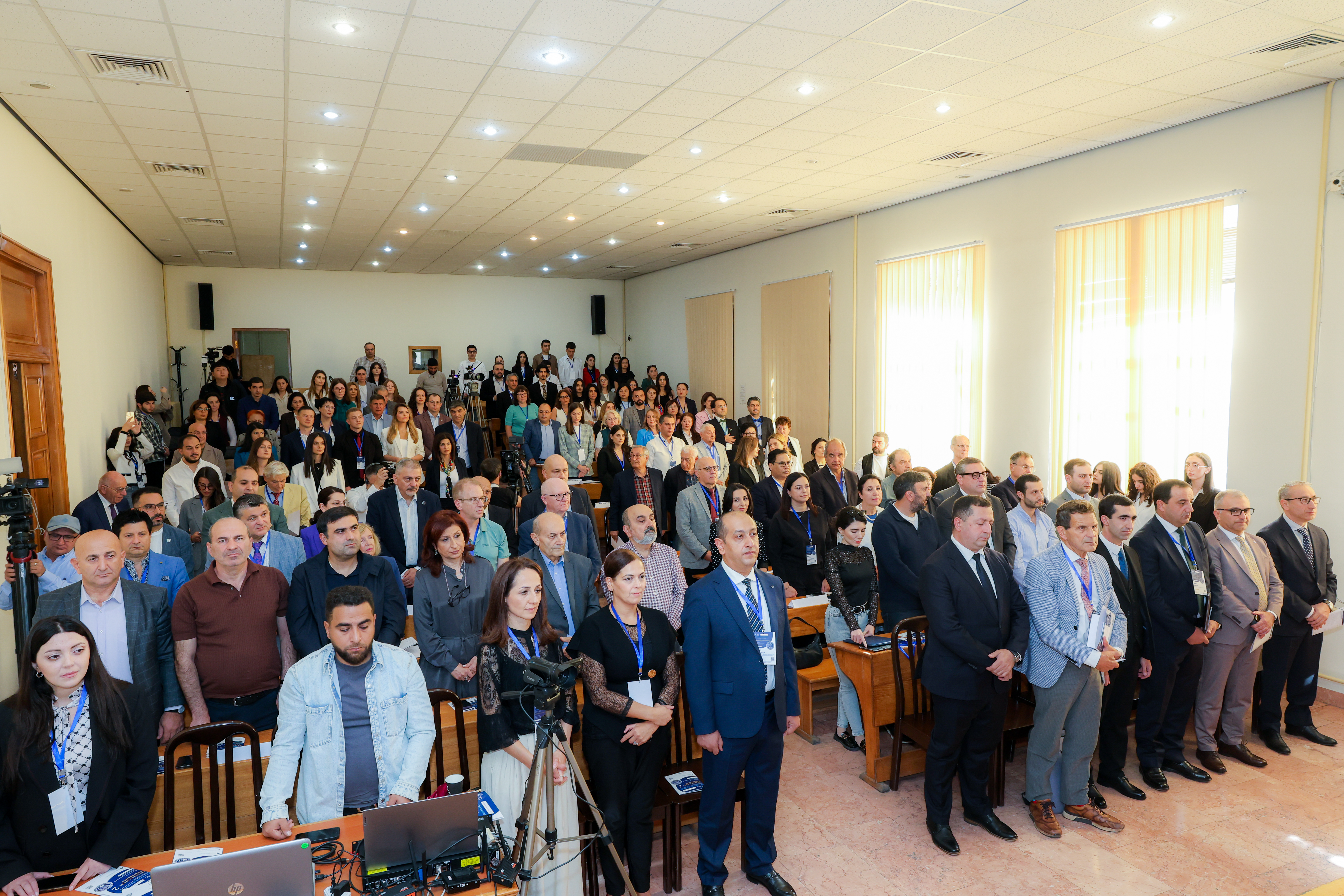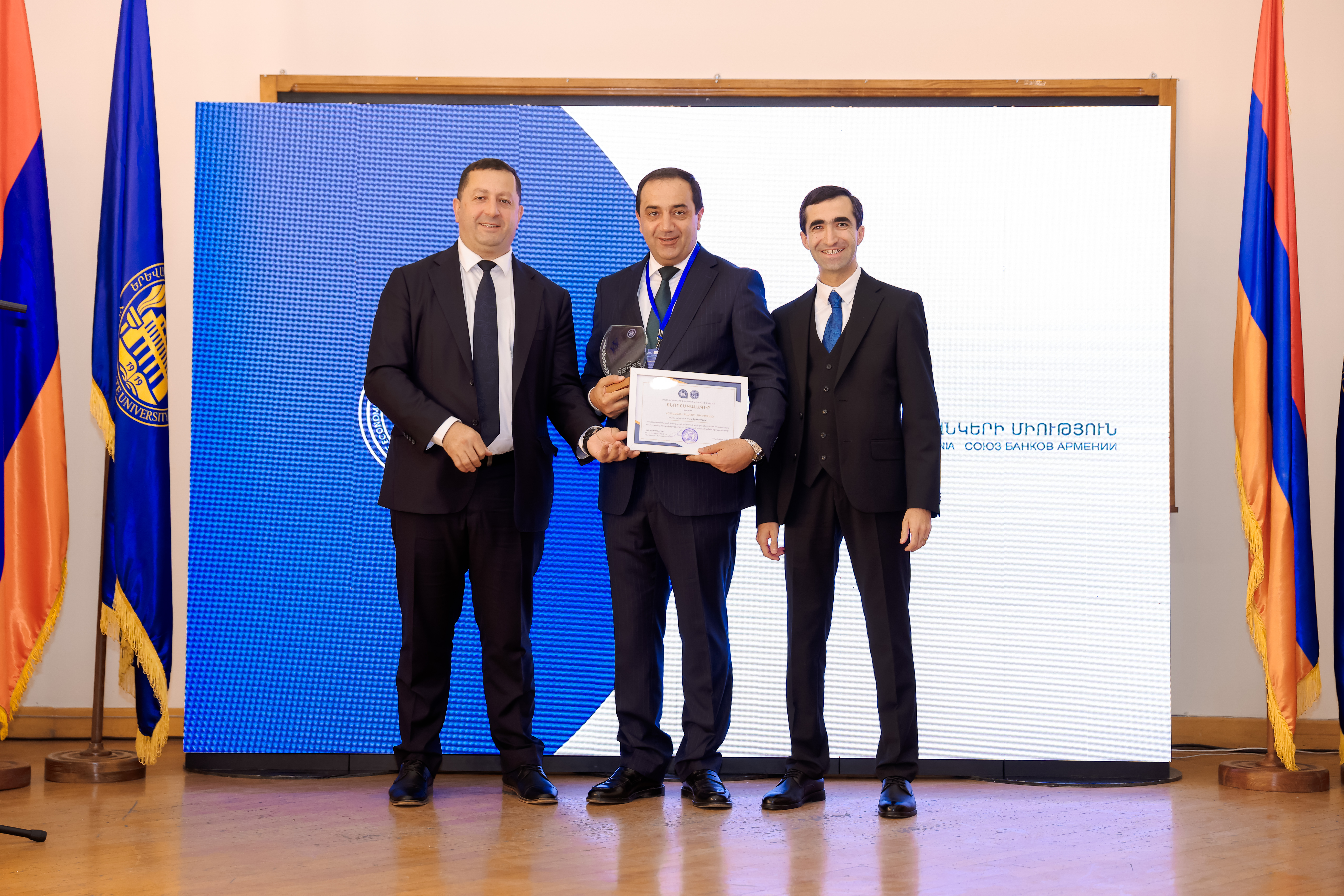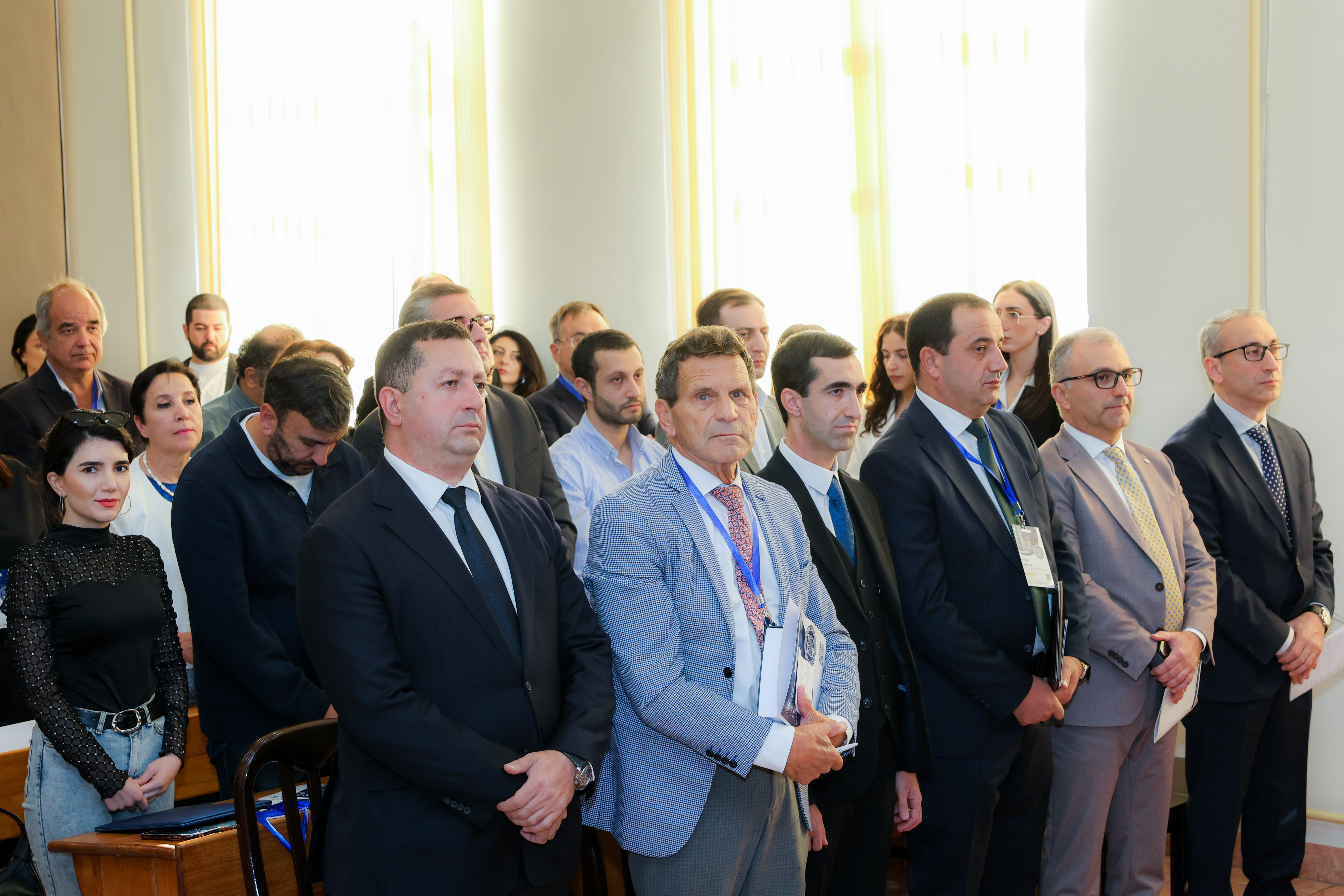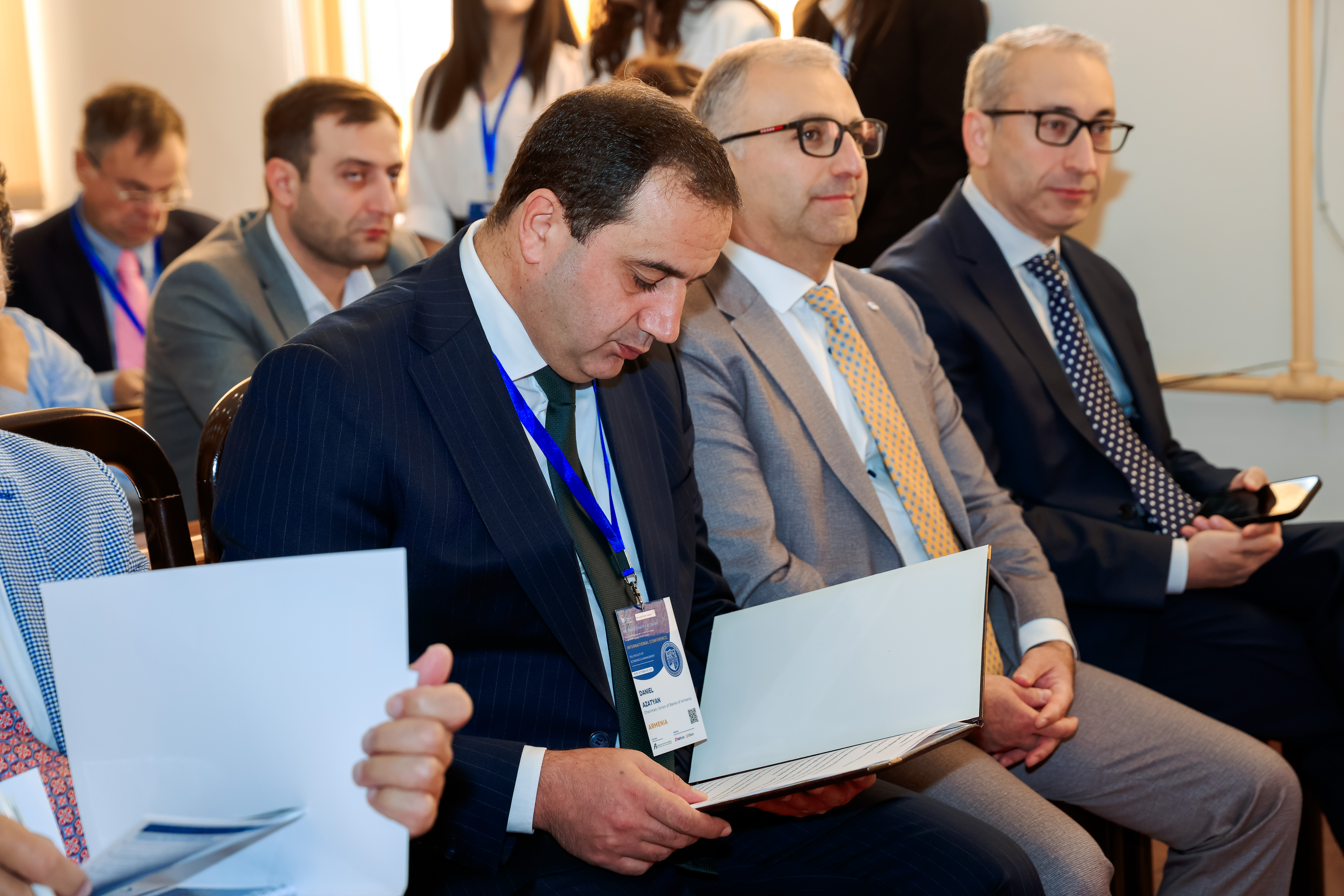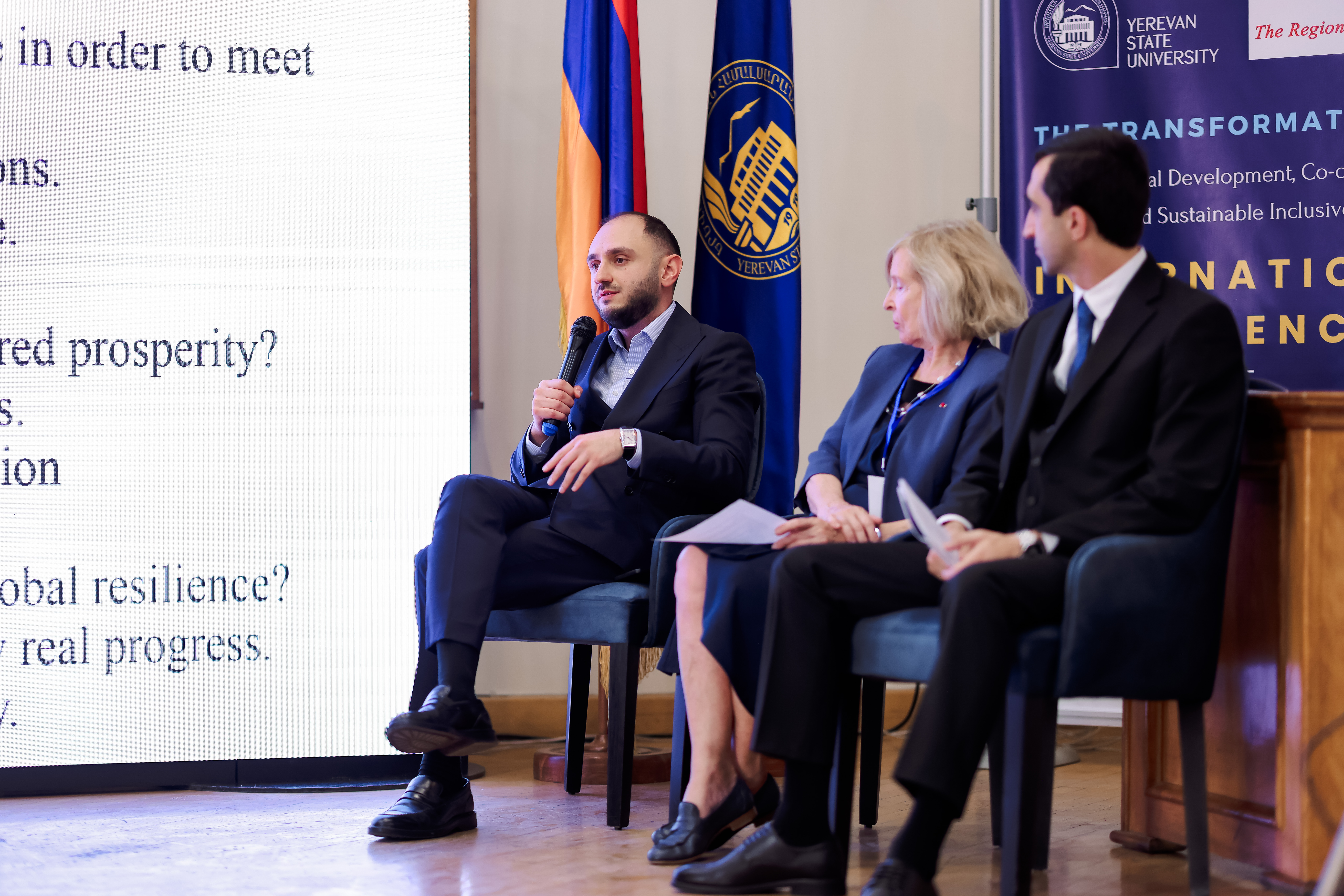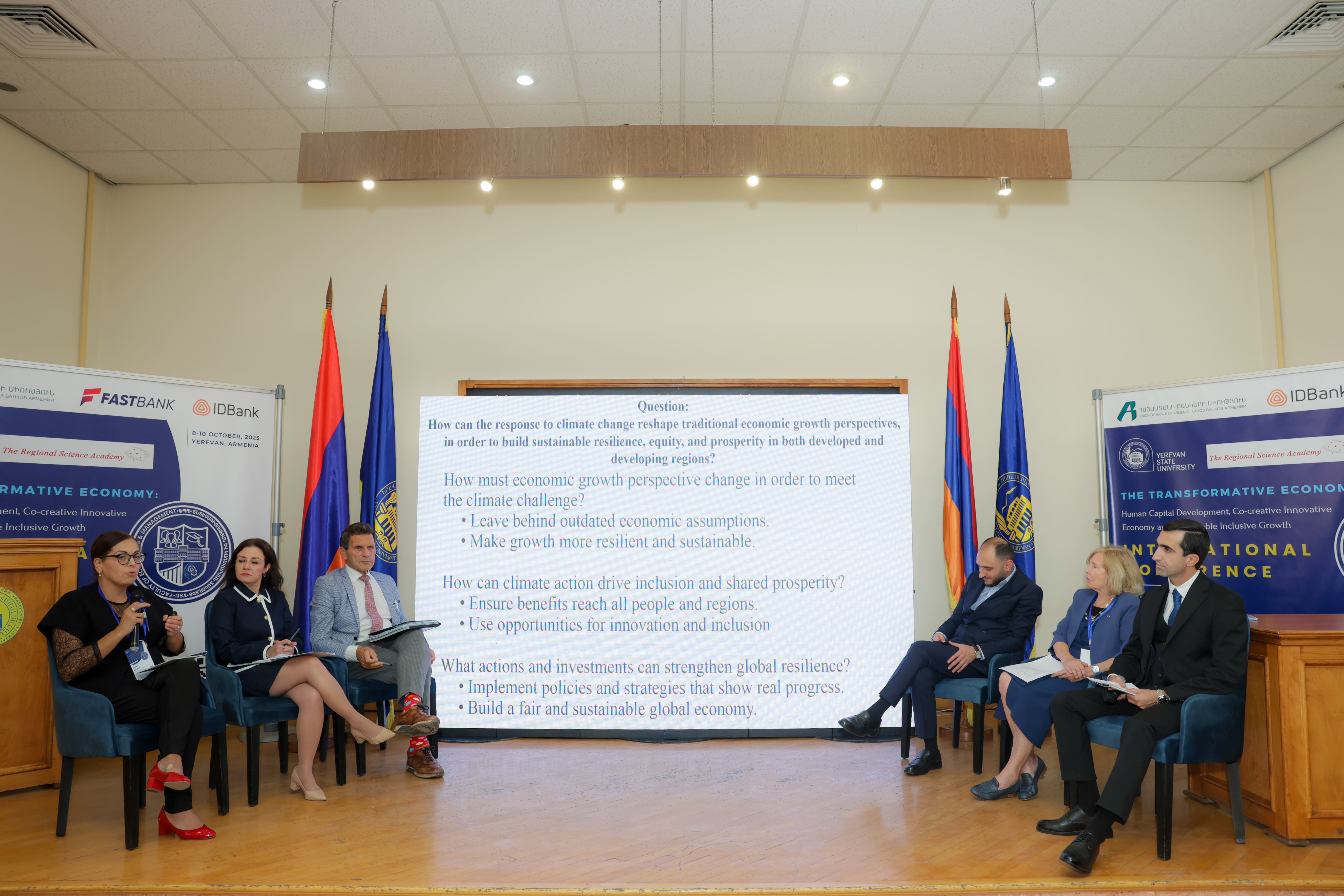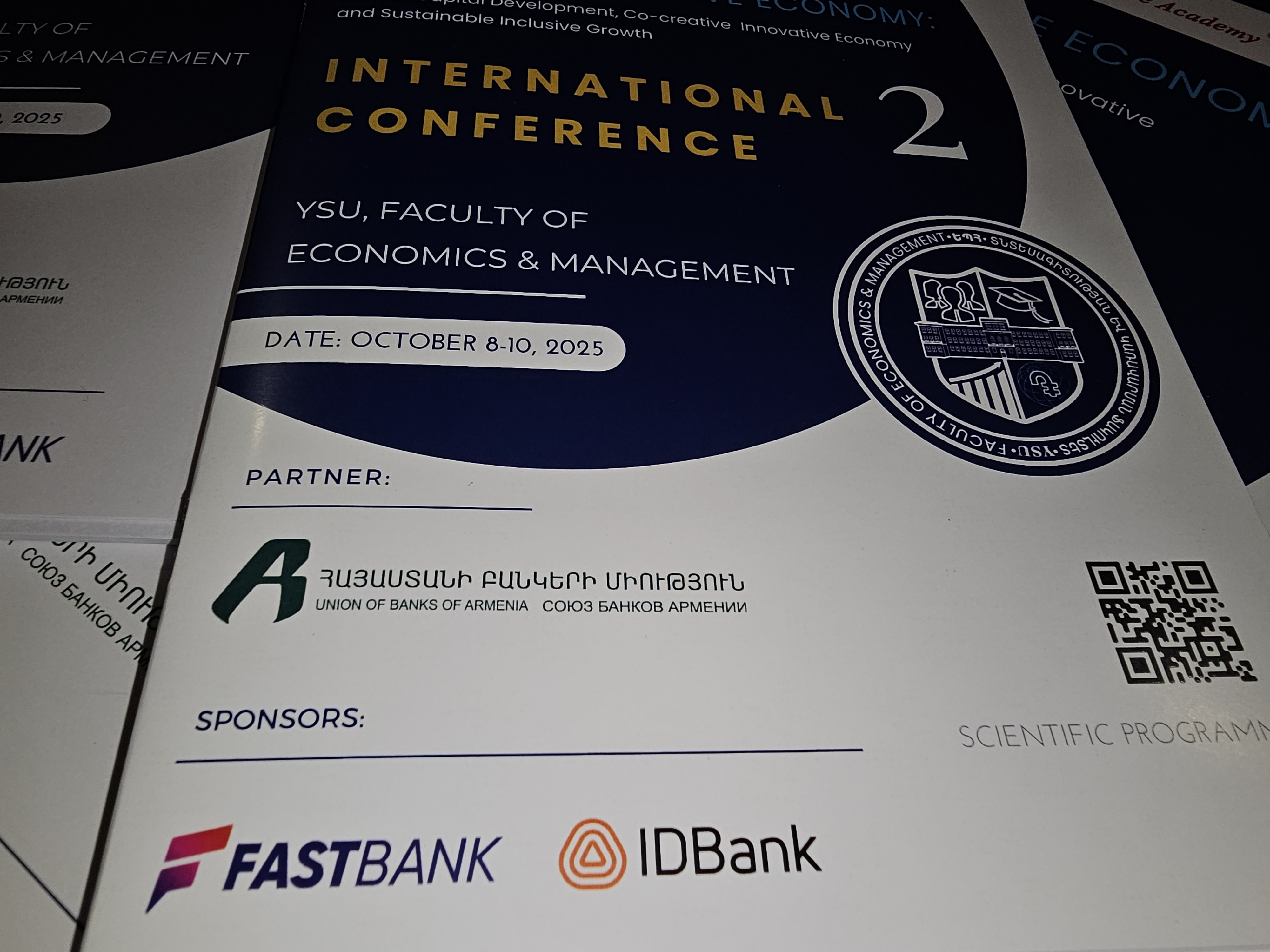From October 8 to 10 of this year, the Faculty of Economics and Management at Yerevan State University hosted the 2nd International Conference "Transformative Economy". The event received support from leading financial institutions, including the Union of Banks of Armenia, IDBank, and Fast Bank. Their willingness to support the faculty and their constructive approach once again demonstrate that partner organizations, recognizing their social responsibility, stand alongside the academic community and contribute to the development of educational and research initiatives.
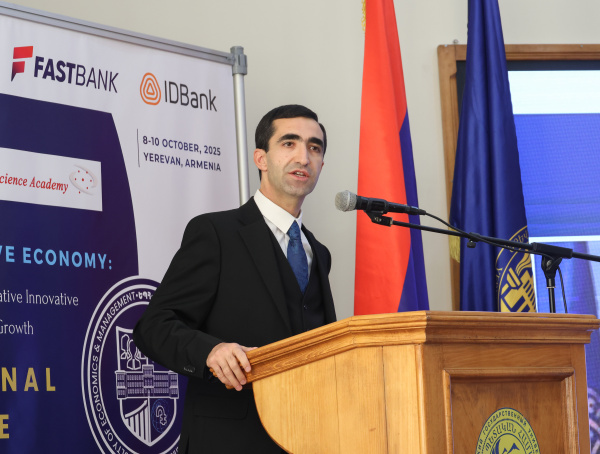
"Now in its second edition, this international conference is one of the Faculty of Economics and Management's most significant initiatives. Its aim is not only to develop the faculty as an educational center but also to serve as a hub for international collaboration, scientific advancement, and the reevaluation of national economic policy. Through this scientific event, organized in collaboration with our partners, we are building new bridges between Armenia and the global academic community," said Professor Karlen Khachatryan, Dean of the Faculty.
According to him, the advancement of science is possible only when the private sector recognizes its social responsibility in developing a knowledge-based society.
"The active involvement of our sponsors and partners represents not only financial support but also an ideological investment—proof that business and science can and should move in the same direction. Today, we are not only organizing a conference with a wide scope and international reach but also cultivating a culture of collaboration in the service of advancing science, education, and the competitiveness of the national economy," emphasized Karlen Khachatryan.
Representatives of the sponsoring and partner organizations, in turn, highlighted the importance of such collaboration and its impact on the development of the scientific and educational environment. Many of the faculty's academic initiatives are implemented thanks to constructive cooperation with these partners. Leading financial institutions and prominent business figures in Armenia have supported this conference.
Representatives of banks that supported the conference agree that such initiatives promote both scientific progress and the quality of professional education.
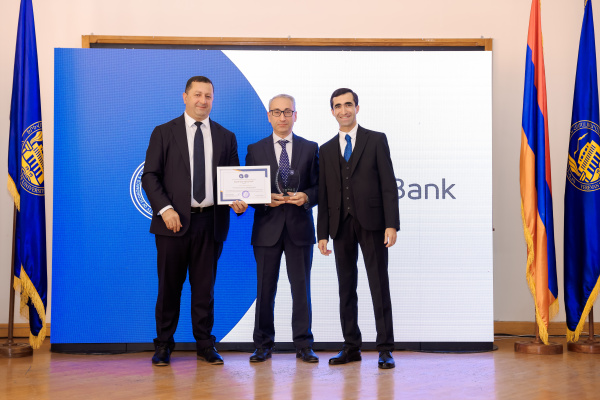
According to Mher Abrahamyan, Chairman of the Management Board of ID Bank, every international conference inspires the younger generation on their path to achieving excellence in their chosen fields.
Mher Abrahamyan noted that the "Transformative Economy" conference served as an important platform for exchanging knowledge, experience, and new ideas among young specialists, students, and experts. The event not only stimulated the academic environment but also allowed participants to understand the real challenges of economics and management, while simultaneously fostering a new generation equipped with knowledge and innovative thinking capable of driving national development.
"Bank–university collaboration should continue and be a mutually beneficial process, encompassing student internships and retraining programs, joint research in financial technologies and sustainable development, as well as innovative initiatives that integrate the university's scientific potential with banking expertise," he added.
Executives of Armenia's leading banks agreed that initiatives such as those undertaken by the faculty contribute not only to the advancement of science in the country but also create a long-term foundation for effective collaboration between business and the academic sphere.
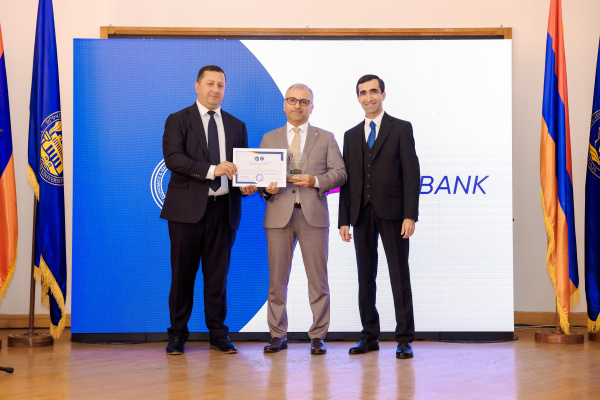
Garegin Darbinyan, Executive Director and Chairman of the Directorate of Fast Bank, emphasized that every investment in education and science pays off by creating a more informed, proactive, and responsible generation. He said, "Fast Bank has adopted a strategy to educate the young generation, helping them discover their potential and become advanced professionals. Equally important is integrating international academic expertise, which allows our scientists and lecturers to enhance their knowledge and, in turn, pass it on to students, preparing them as competitive specialists capable of meeting the demands of a modern economy."
"Fast Bank is guided by innovative thinking, and we cannot remain separate from academic discourse," Garegin Darbinyan noted.
Regarding promising formats for university–business collaboration, he stressed that in the era of a transformative economy, the greatest and irreplaceable value is the human being with creative intelligence. He added, "Fast Bank continues to invest in the scientific and educational sector, supporting individuals with creative and pioneering ideas, academic and cultural institutions, and educational programs in the IT sector. This vision remains unchanged and integral to the bank's mission."
As Karlen Khachatryan pointed out, many leaders and staff in Armenia's public institutions, major businesses, and financial organizations are graduates of the YSU Faculty of Economics and Management. Today, the faculty continues to serve as a primary source of highly skilled professionals for these organizations. The motivations and mechanisms for establishing long-term, mutually beneficial relationships with partner organizations are diverse, ranging from joint research to scholarships and recruitment of potential employees. The faculty aims to expand university–business collaboration not only in personnel training, student practical skills, and innovation implementation but also in scientific development and access to international research results. By supporting the faculty, organizations indirectly invest in the education of their future workforce, providing students with opportunities to receive an education that meets international standards.
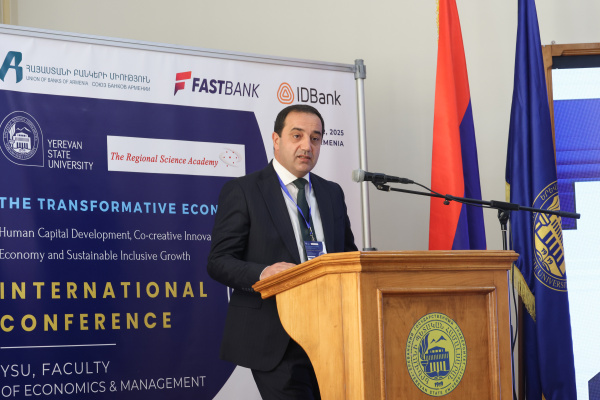
Daniel Azatyan, Chairman of the Union of Banks of Armenia, emphasized that cooperation between science and the financial system is a key pillar of development and innovative growth. Scientific research makes it possible to analyze economic trends, assess risks, and develop evidence-based policies and mechanisms, enhancing the efficiency of the financial system. In turn, the financial system applies these findings in practice, promoting long-term economic stability.
"Universities and the banking system share common values of knowledge, innovation, and progress. The Union of Banks of Armenia highly values its long-standing collaboration with universities, based on knowledge dissemination, idea generation, and innovation implementation. Our collaboration contributes to the growth and strengthening of human capital and ensures long-term economic stability," said Daniel Azatyan.
The successful convening of the conference once again proved that it is most effective when it has reliable and committed partners. To acknowledge their support for organizing the international conference, Dean Karlen Khachatryan presented letters of appreciation and symbolic gifts to Daniel Azatyan, Chairman of the Union of Banks of Armenia; Mher Abrahamyan, Chairman of the Management Board of ID Bank; and Garegin Darbinyan, Executive Director and Chairman of the Directorate of Fast Bank.
"The preparatory work for the 3rd edition of the international conference has already begun. Every effort is being made to ensure that it matches or even surpasses the scope and scientific achievements recorded this year. For this, we expect the continued support of our partners," concluded Karlen Khachatryan.
The faculty values the support of all its sponsors and partners and is confident that this collaboration will continue with new scientific initiatives in the future.

